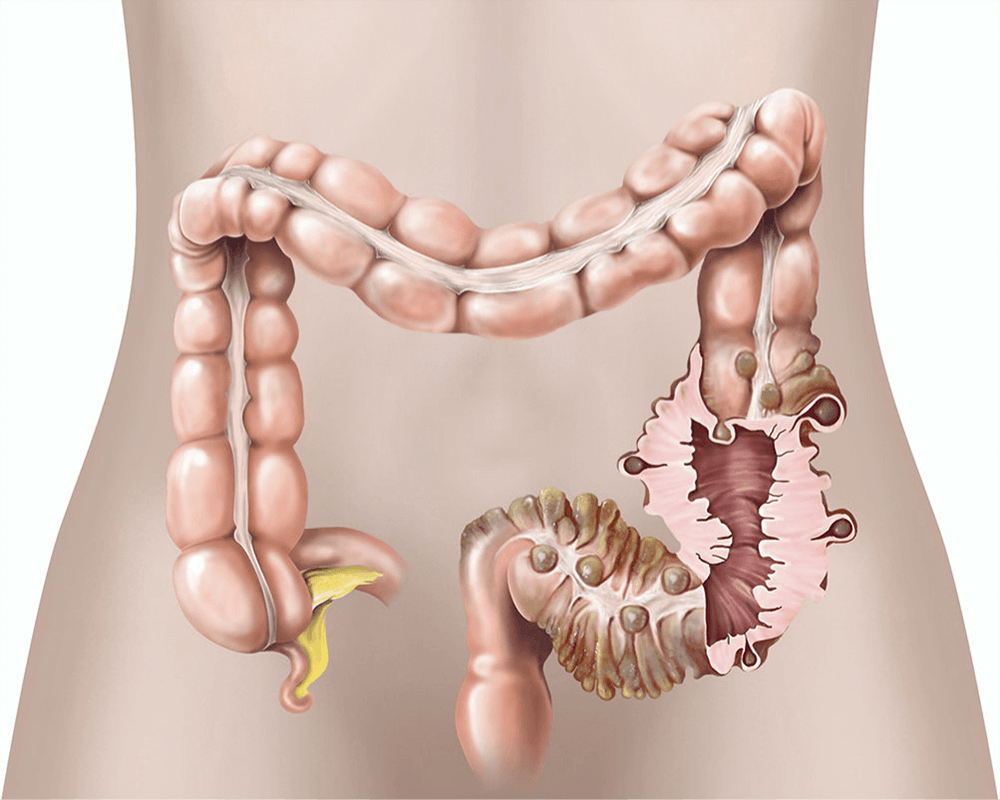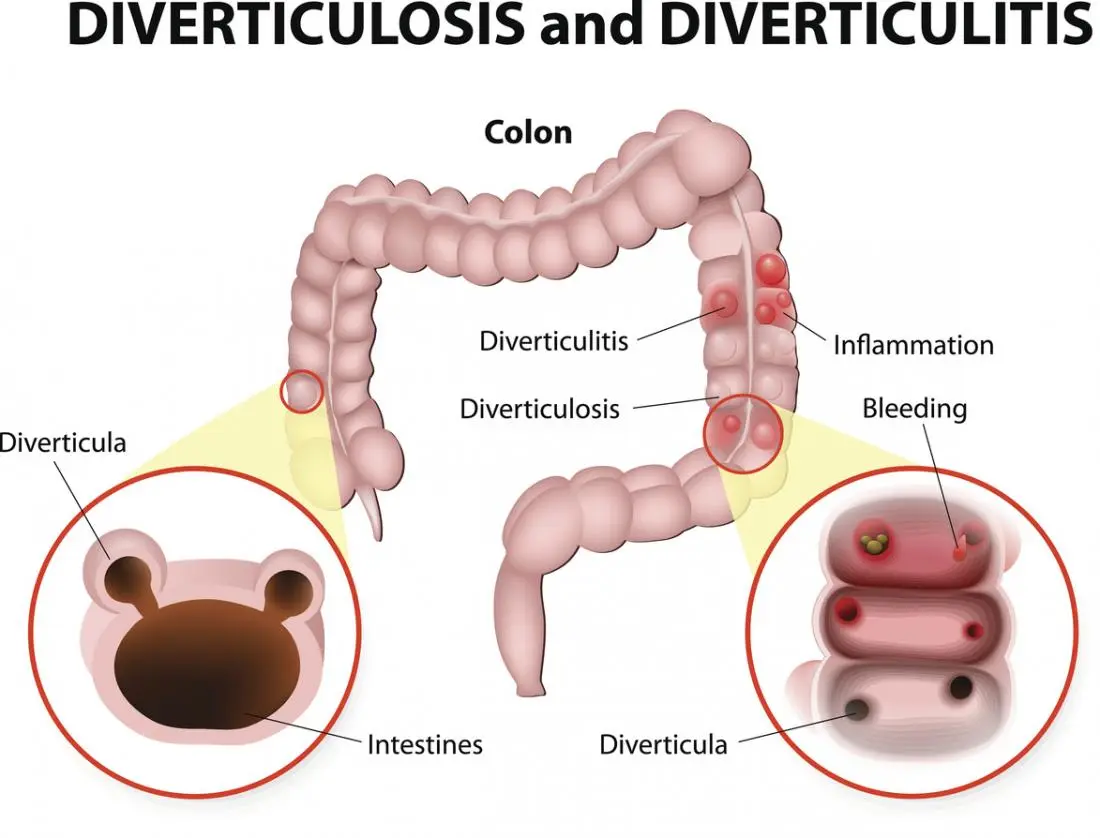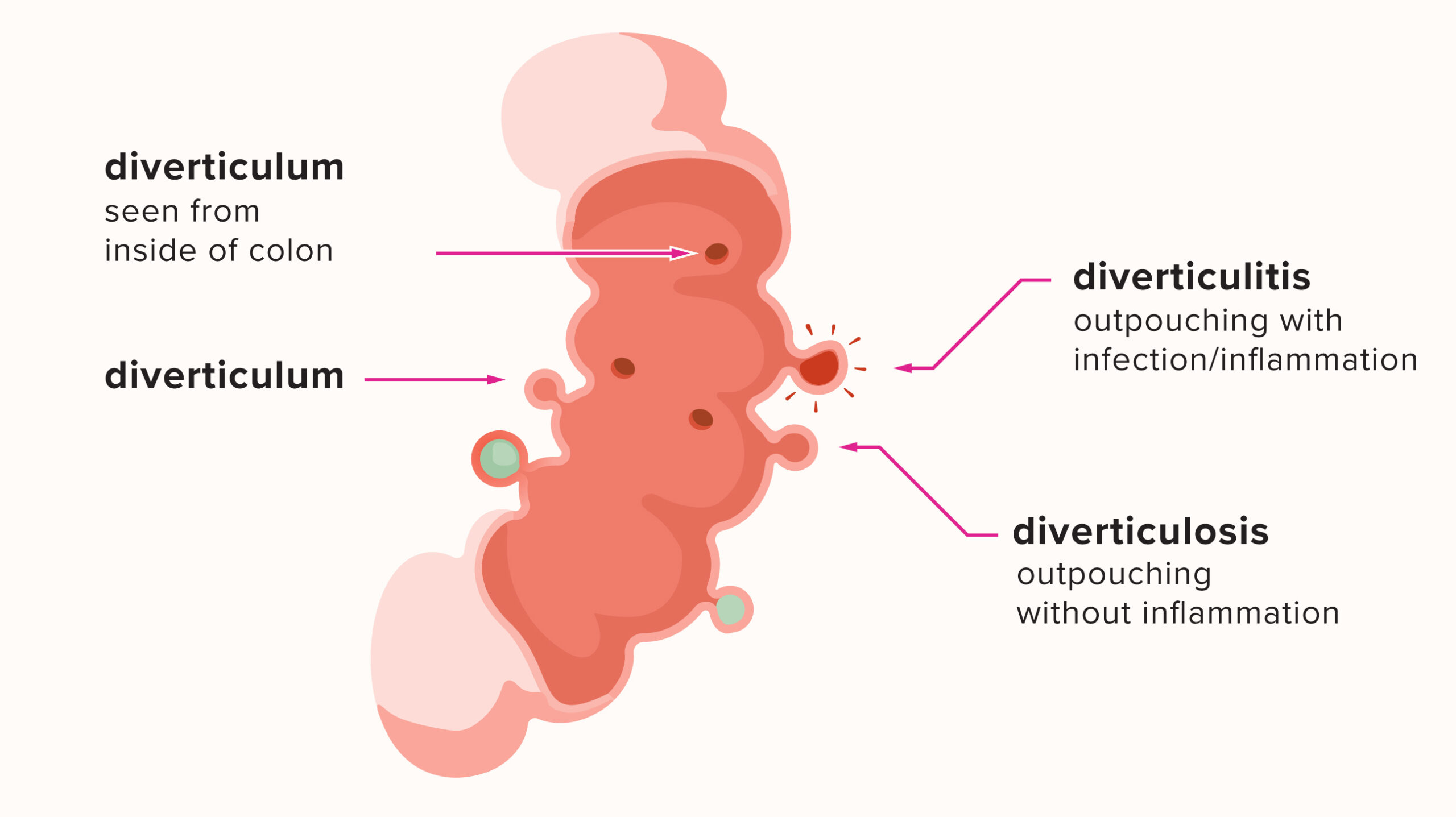CONDITIONS
Diverticular Disease and Diverticulitis

In diverticular disease (or diverticulosis) small blind-ending pockets or pouches form in the wall of your colon (or large intestine).
Diverticulosis is a very common problem and often causes no symptoms. Diverticulitis occurs if these pockets become inflamed or infected – this is a more serious condition with more pronounced symptoms and a risk of complications.

What causes diverticulosis?
Diverticular disease occurs when small pockets (or diverticula) form in the inside wall of the colon and push through the bowel wall. They can occur throughout the colon but are particularly common in the lower part of the colon (sigmoid colon) which is on the left-hand side of the lower abdomen. The chances of developing diverticula (and diverticulosis) increase as you get older, due to the bowel walls becoming weaker. It’s believed to affect about 10% of people over 45, rising to 80% of 85-year-olds. Some people can get many of these little pockets throughout the colon. It is thought that constipation and a diet low in fiber are risk factors for developing diverticular disease.
What are the symptoms of diverticular disease?
Most people with diverticula in their colon have no symptoms. However, some people may experience abdominal discomfort (especially in the lower left abdomen), or changes to their bowel habits such as constipation or diarrhea. Rarely one of the little pockets can bleed which causes blood in the stool. The bleeding can sometimes be quite heavy and is usually painless.
How is diverticular disease diagnosed?
A CT scan or a colonoscopy can both detect diverticular disease. Because diverticular disease often causes no symptoms, it is often detected as an incidental finding during a scan or colonoscopy performed for a different reason.
What is diverticulitis?
If the pockets in the bowel wall become inflamed or infected, this is known as diverticulitis. In severe cases, the infection can cause an abscess to develop in or adjacent to the bowel wall.
What are the symptoms of diverticulitis?
Diverticulitis can cause more constant and severe abdominal pain (especially in the lower left abdomen), blood or mucus in the stools, and a fever.
How is diverticulitis diagnosed?
If your doctor suspects diverticulitis after taking a history and examining the abdomen, the most important first tests will be blood tests and a CT scan. A colonoscopy should not be performed during an acute attack of diverticulitis but may be necessary in a month or two once the inflammation has settled.

How are diverticular disease and diverticulitis treated?
Treatment for diverticular disease normally involves increasing the fiber in your diet through foods like fruits and vegetables and wholegrain cereals. Simple pain killers that do not inflame the gut such as paracetamol (acetaminophen) can help if there is abdominal pain. Non-steroidal painkillers (NSAIDs) such as ibuprofen, diclofenac, and aspirin should be avoided.
With diverticulitis, a fluid-only diet for a few days may help. Antibiotics are no longer routinely prescribed for mild cases but in more serious cases hospitalization for antibiotics, intravenous fluids, and even surgery may be necessary.

Dr Neil has over 25 years experience of investigating and treating abdominal conditions including diverticulosis and diverticulitis disease in Dubai. He can help arrange any necessary investigations and advise on the right diet and treatment for your condition.
